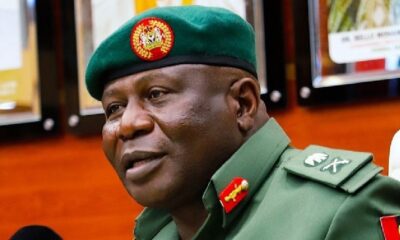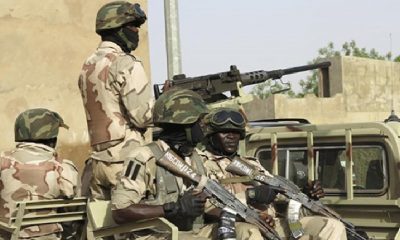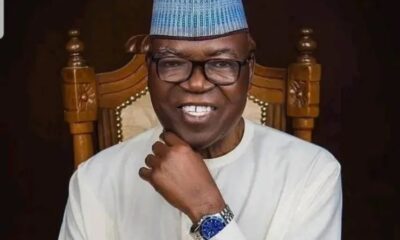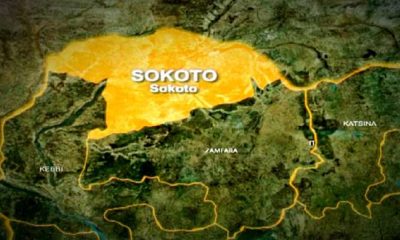News
SEE List of bandit kingpins wasted by Nigerian army

The North-West region, is battliing with massive violence due to local militias, commonly referred to as “bandits.”
Recall it all started in 2011 due to tensions between Hausa farmers and Fulani pastoralists, has worsened in recent years, particularly in Zamfara, Kaduna, and Katsina states.
These bandits have instilled fear and chaos in villages, operating with increasing audacity and impunity.
In response, security agencies have intensified their efforts, launching numerous offensives against these criminal elements.
The Nigerian military has also conducted several air strikes targeting bandit strongholds.
In May, Defence Minister, Muhammad Badaru reported significant progress, stating that a coordinated effort among the Service Chiefs and other security agencies had resulted in the elimination of over 9,300 bandits and insurgents, with an additional 7,000 arrested in the past year.
A notable development occurred recently when the Nigerian Army successfully eliminated Kachalla Halilu Sububu, a notorious bandit leader and arms supplier.
Sububu, who was a major figure in the region’s banditry, was known for his operations in the Sububu Forest and his substantial cattle herds. His death is seen as a significant blow to bandit operations in the area.
Despite these efforts, many bandits remain on the Army’s wanted list, continuing to pose a serious threat to regional security.
Here’s a full list of some of the bandits’ leaders who have been killed as confirmed by the military:
1. Halilu Sububu
2. Buhari Alhaji Halidu otherwise known as “Buharin Yadi” – He unleashed terror on citizens in Kidandan/Galadimawa general areas of Giwa LGA, Sabon Birni/Kerawa general areas of Igabi LGA, other locations in nearby Sabuwa LGA of Katsina State, and indeed some parts of Niger and Zamfara states.
3. A kingpin commonly called Dangote was killed in a gun battle with Kachalla Dankarami’s camp along the Dumbunrun Forest between Batsari and Jibia local government areas of Katsina State.
4. Boderi Isyaku – A notorious bandit leader, responsible for the kidnapping of 39 students of the Federal College of Forestry Mechanisation and the attack on the Nigerian Defence Academy (NDA), Kaduna in 2021.
5. Kachalla Dan Chaki
6. Dogo Gudali
7. Dogo Rabe – He was killed in an Air Force strike during an operation to flush out terrorists operating in communities between the Zurmi and Birnin Magaji areas in Zamfara State, and Jibia in Katsina State.
8. Alhaji Auta and Kachalla Ruga – They were killed alongside many of their gang members in a raid on their enclaves at Gusami Forest and Tsamre village in Birnin Magaji Local Government Area of Zamfara State.
9. Rufai Maikaji – He was a deadly bandit who commanded over a hundred fighters in the state.
10. Ya’u – He was killed in an ambush by the troops at a strategic crossing point in Burra, Ningi. He was the leader of the gang which is notorious for using heavy weaponry to instill terror among the residents of Burra and neighbouring communities.
11. Alhaji Karki – He was killed while attempting to overrun a military unit in Niger State. Karki, who once repented but later went back to criminality, had been terrorizing Niger communities and was responsible for killings, arsons and kidnappings in the areas.
12. Bandit leader “Yellow” – He was operating several bandit camps in Zamfara, Kaduna, and Katsina states, but was killed following Nigerian Airforce air strikes in Katsina and Zamfara states.
News
15 huts razed, one injured in renewed Jukun-Tiv violence
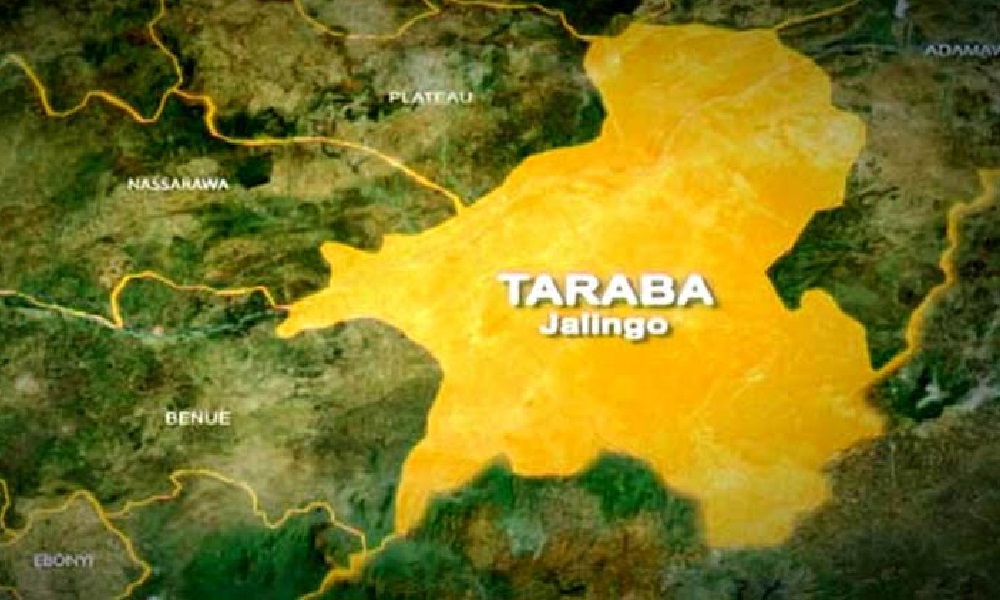
A fresh outbreak of ethnic violence between the Jukun and Tiv communities has erupted in Taraba State, with suspected Jukun militias launching an early-morning attack on Dekeh Village along the Wukari–Kente Road.
According to security sources available to Zagazola Makama, the incident occurred at approximately 1:00 a.m. on Tuesday.
About six armed assailants stormed the village, opening fire indiscriminately and setting 15 huts ablaze. The attack forced residents to flee in panic, leaving behind food items, including yam seedlings, which were destroyed in the blaze.
One resident identified as Mdue Saaondo, sustained gunshot injuries during the assault. He was rescued by a joint team of police and military personnel and transported to the Federal University Teaching Hospital in Wukari for medical treatment.
The Taraba State Police Command has launched an investigation to identify and apprehend those responsible. Authorities have also scheduled a security meeting with the Wukari Local Government Traditional Council as part of efforts to restore peace and encourage dialogue between the Tiv and Jukun communities, who have long-standing disputes over land and territorial claims.
“Patrol and surveillance operations are ongoing to forestall further violence and ensure stability in the area,” police authorities stated.
The incident adds to the growing list of violent clashes that have plagued southern Taraba in recent years, underscoring the urgent need for a sustainable resolution to the communal tensions.
News
2025 U-20 AFCON: Flying Eagles zoom into quarter-final after draw with Kenya

Nigeria’s Flying Eagles booked a place in the quarter-final at the 2025 Africa U-20 Cup of Nations after playing out a 2-2 draw against Kenya.
Aliyu Zubairu’s side finished second in Group B with five points from three games.
The Atlas Cub of Morocco top the group with seven points after beating Tunisia 3-1 at the Suez Canal Stadium in Ismailia.
Kenya started the game strongly, and deservedly took the lead after six minutes.
Nigeria defender Emmanuel Chukwu handled the ball inside the box, and after initially awarding a free kick to Kenya, the centre referee pointed to the spot following consultation with VAR.
Captain Kevin Wangaya Colly slotted the ball past Ebenezer Harcourt to give the Rising Stars the lead.
The Flying Eagles fought back seven minutes later with Lillestrøm striker Kparobo Arierhi netting after he was put on through on goal by Simon Cletus.
Nigeria dominated the game in the second half but failed to test the Kenyan goalkeeper.
Kenya took the lead for the second time in the game through substitute William Nwangi on 68 minutes.
Nwangi lashed home Humphrey Kegengo’s free kick from inside the box.
Daniel Bameyi, however, converted from the spot to hand the Flying Eagles a share of the spoils.
News
Trump announces judicial nominees, accuses US court of obstruction
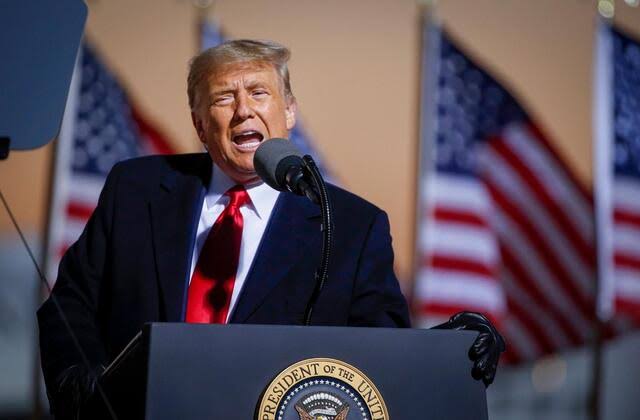
United States President Donald Trump has announced a fresh slate of judicial nominees in a series of posts on Truth Social on Tuesday.
The president, who has repeatedly expressed frustration over what he sees as judicial obstruction, followed up on Wednesday with a post criticising the judiciary for allegedly preventing him from carrying out the mandate of the American people.
The Republican leader, whose second-term agenda has encountered multiple judicial roadblocks, wrote: “Our Court System is not letting me do the job I was Elected to do.
“Activist judges must let the [Donald] Trump Administration deport murderers, and other criminals who have come into our Country illegally, WITHOUT DELAY!!!”
Trump named Maria Lanahan, Missouri’s Principal Deputy Solicitor General, as a nominee for a judgeship on the US District Court for the Eastern District of Missouri. He praised her as “a true patriot” in a post on Tuesday.
The 78-year-old also nominated Judge Cristian Stevens to serve on the same court, describing him in another post as “a Great Patriot.”
The announcements came a day after a federal appeals court declined the Trump administration’s request to revoke temporary legal status from hundreds of thousands of Nicaraguans, Venezuelans, Haitians, and Cubans living in the United States.
-

 News20 hours ago
News20 hours agoReal cause of Herbert Wigwe’s helicopter crash revealed
-

 Politics22 hours ago
Politics22 hours agoUghelli North PDP Holds Crucial Meeting
-

 News12 hours ago
News12 hours agoJust in: Finally, EFCC bows to pressure, releases VDM
-

 News18 hours ago
News18 hours agoJust in: Security and Exchange Commission declares PWAN as PONZI scheme, cautions Nigerians
-

 News16 hours ago
News16 hours agoJust in: Lagos LG chairman slumps during APC meeting
-

 Economy21 hours ago
Economy21 hours agoSEE Black Market Dollar to Naira Exchange Rate Today – 7th May 2025
-

 News20 hours ago
News20 hours agoFG starts massive overhaul of NYSC scheme, plans teachers’, medical corps
-

 News17 hours ago
News17 hours agoMultiple video evidence against Nnamdi Kanu


